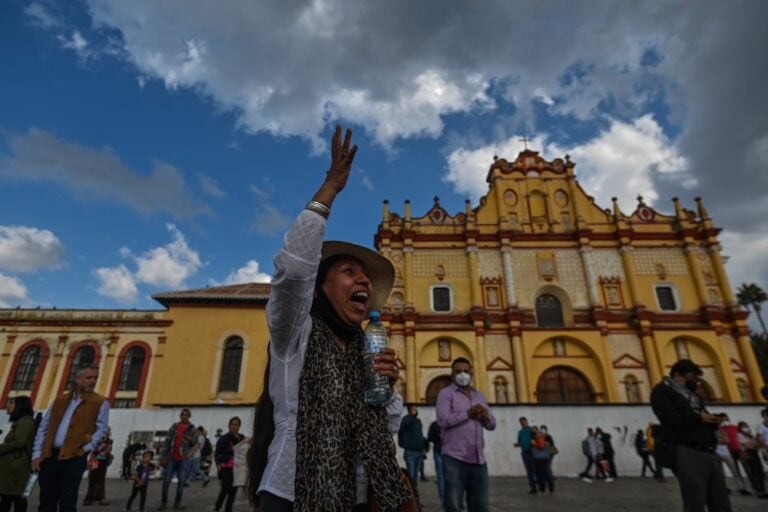(AMARC/IFEX) -According to the Pulsar news agency, Mexican authorities have accused several humanitarian organizations of setting up radio stations as part of efforts to create a free zone in the state of Chiapas. Fernando Solis Camara, Undersecretary of the Interior, stated that the government had information indicating that there were plans to establish radio stations […]
(AMARC/IFEX) -According to the Pulsar news agency, Mexican authorities have
accused several humanitarian organizations of setting up radio stations as
part of efforts to create a free zone in the state of Chiapas. Fernando
Solis Camara, Undersecretary of the Interior, stated that the government had
information indicating that there were plans to establish radio stations in
indigenous communities sympathetic to the Zapatista National Liberation
Army.
These allegations were denied by the main organizations implicated by
authorities: Civil Connection (Enlace Civil), Ministers for Peace (Pastores
por la Paz) and The Humanitarian Laws Project (Proyecto de Leyes
Humanitarias).
According to Pulsar, a report issued by the Mexican intelligence agency
alleges that Civil Connection is collaborating with human rights groups from
Europe and the United States in order to establish a chain of radio stations
in five sites in Chiapas. The report also indicated that some North
Americans who had been expelled from Chiapas in the last several days, were
part of a project to install radio stations in the villages of Oventic, La
Garrucha, La Realidad, Morelia and Ejido Roberto Barrios. The report follows
several recent expulsions of foreign volunteers which have caused certain
observers to fear that the Mexican government is creating an atmosphere of
intolerance against foreigners. The expelled activists have said that they
were involved in bringing humanitarian aid to indigenous communities in the
aftermath of the massacre of 45 indigenous persons in the village of Acteal
by a paramilitary group connected to the governing party.
Mexico has a network of “indigenous” radio stations operated by the National
Indigenous Institute (Instituto Nacional Indigenista, INI), a government
agency. According to Pulsar, INI centralizes decisions regarding the
budgets of the stations and their personnel, and in the end, these stations
are controlled by the ruling government and serve to limit rather than
promote debate.
AMARC believes that the radio projects currently under attack by Mexican
authorities are not being forced on the people of Chiapas by foreigners, as
the government seems to be saying. Rather they are examples of the desire
of the indigenous people of Chiapas to have independent radio stations.
While AMARC believes it is likely that there are some foreign groups
supporting these radio projects, the organization fears that the report has
been leaked at this time to justify the expulsion of foreign journalists and
human rights workers from Mexico as well as an eventual crackdown on any
independent communication efforts.


